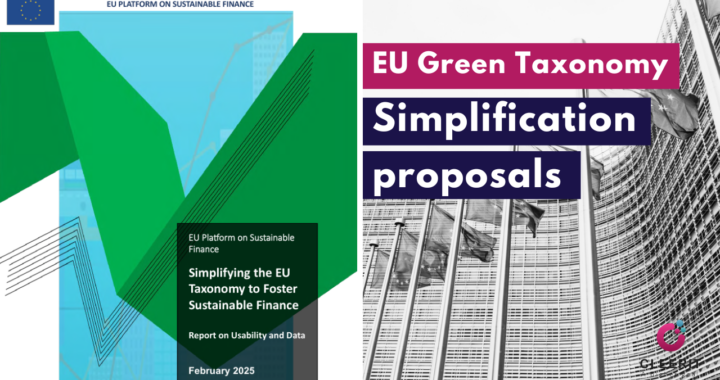To unlock the full potential of the EU Taxonomy – a novel tool for steering investments towards a climate resilient, net-zero and sustainable economy – ongoing refinements and simplifications are essential.
In response to the European Commission’s mandate, the Platform on Sustainable Finance, an advisory body to the Commission, published a report on 5/2 with evidence‑based recommendations aiming at simplifying taxonomy reporting while enhancing its effectiveness.
The Platform estimates that the following 4 proposals will together contribute to reducing the reporting of non-financial companies by over 1/3 compared to the current state:
⭕ 1. More than one-third reduction in corporate reporting burden with:
➡️ Adjusting the OpEx KPI as a voluntary disclosure, except for R&D.
➡️ Introducing a materiality threshold for reporting the Turnover, OpEx, CapEx KPIs and the combined KPIs of financial companies, in line with the Accounting Directive.
➡️ Enhancing the alignment with financial reporting.
➡️ Simplifying reporting templates, with a clear reduction of data points to limit the reporting to information that is relevant for making business decisions.
⭕ 2. A simplified GAR that encourages green and transition lending:
➡️ Ensuring a symmetrical GAR with similar numerator and denominator composition.
➡️ Simplifying retail exposure reporting, focusing on substantial contribution.
➡️ Allowing for estimates and proxies for reporting, in conjunction with safe harbours to protect against greenwashing allegations.
➡️ The materiality principle should apply to the combined KPI for financial undertakings, excluding immaterial business segments not consolidated under the Accounting Directive.
⭕ 3. A practical approach to DNSH criteria:
➡️ Introducing a lighter compliance assessment process (regarding evidence of compliance, documentation and/or on EU regulations).
➡️ All DNSH criteria should be reviewed as part of the scheduled reviews of various delegated acts, prioritising their usability and practicality for financial and non financial companies.
➡️ Introducing a “comply or explain” approach for DNSH assessment of the Turnover KPI, as a temporary measure.
⭕ 4. Helping SMEs access sustainable finance:
➡️ Adopting a streamlined and voluntary approach for banks and investors’ exposures to unlisted SMEs.
➡️ Adopting a simplified approach to the Taxonomy for listed SMEs.
The use of estimates and proxies, combined with a streamlined DNSH assessment process, is essential for rapidly and significantly reducing the reporting burden on financial companies.
Additionally, both financial and non-financial companies will benefit from the introduction of a materiality approach, further enhancing proportionality and efficiency in reporting.
Source: Simplifying the EU Taxonomy to Foster Sustainable Finance
